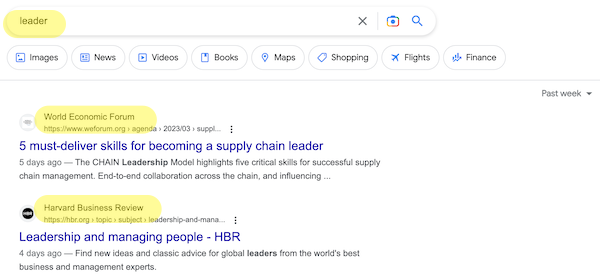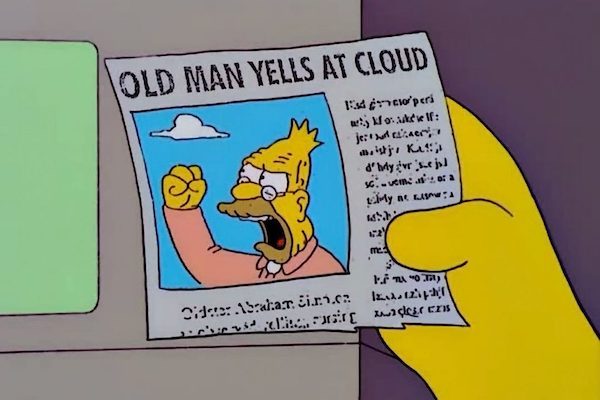By Lambert Strether of Corrente.
“All that is solid melts into air.” –Karl Marx and Friedrich Engels, The Communist Manifesto
“Gentlemen, I as leader will use power like a drum and leadership like a violin.” –Firesign Theatre, Waiting for the Electrician or Someone Like Him
There’s some verbiage I keep hearing that makes my back teeth itch. “Influencer.” Of what? What for? “Creator.” Not sculptor, painter, opera singer, poet, novelist, comedian, vaudevilian, or anything where mastery of the particularities of a medium matters, and which is not digital, or “on” social media for any but the crassest of motives. But the worst of them all, the most vile, and the most dangerous–
“Leader.” An intellectual historian should really be teasing apart how “leader” grew like kudzu over all discussions of power relationships, and perhaps that happy day will come, if there are any history departments left, but for now this post will have to do.
Let’s start by looking at eleven more or less randomly selected headlines from the newsflow in the last week. After the source for each headline, I have given the precise office (or “place,” as Madison has it) held by the putative leader. You will notice that in most cases it would be easy to change the headline to be precise rather than vague (“President” for “leader,” in #1, for example). Our hypothetical intellectual historian might infer that there was some ideological process going on in the minds of the editors who write the headlines (rather than the typographic necessity of keeping the headline to a certain character count, which only has force in print, in any case). The headlines:
1) Micronesia leader accuses China of bribery, threats in Taiwan bid Al Jazeera. President.
2) Colorado GOP selects combative, election-denying new leader ABC. Party chair.
3) Senate Republican leader Mitch McConnell is being treated for a concussion after a fall NBC. Senate Minority Leader.
4) Why ChatGPT and AI are taking over the cold call, according to Salesforce leader CNBC CEO, Board Director, Entrepreneur.
5) Stephen Flynn backs Humza Yousaf in SNP leadership race. Party leader.
6) Another traditional leader shot dead in KwaZulu-Natal Independent Online. Of the KwaNobamba Traditional Council.
7) Reason why Kate’s handshake to community leader was awkwardly left hanging on royal visit The Mirror. Imam.
8) Biden and E.U. Leader Seek Common Ground on Trade and Ukraine New York Times. European Commission president.
9) Philippe Martinez, the union leader taking on Macron Financial Times. General secretary of the General Confederation of Labour (CGT). FT says “boss.”
10) Hong Kong leader John Lee pledges to gain more policy support from Beijing as he leads largest delegation to capital amid ‘two sessions’ South China Morning Post. Chief Executive.
11) North Korean leader Kim calls for intensified drills for ‘real war’ Straits Times. General Secretary of the Workers’ Party of Korea.
The precise offices for each “leader” differ radically from each other in terms of the power relationships they embody and leverage. It is at best sub-optimal and at worst outright agnotological to throw an Imam (context: worship), a CEO (context: profit), a party chair (context: balloting), a party leader (context: government) into the same bucket. Worshippers are not shareholders are not voters!
Ursula von der Leyen and Kim Il Sung are not usefully classified together (except possibly in airport bookstire business sections, where no doubt both of them have autobiographies). What kind of mentality produces such a result? I would suggest a mentality that thinks in simple, cartoonish icons:
As you can see, in icons, leaders are either heroic individuals, or heroic individuals with followers. That’s all very well, except with you consider what happens when you melt all the particularities of office — presidents, party chairs, minority leaders, CEOs, party chairs, party leaders, imams, “union bosses,” general secretaries — into the generic air of “leadership.” There is, in fact, a name for that, and it has a history.
The name is Fuhrerprinzip (WikiPedia, sorry[1]). Note the dissolution of the particularities of office:
When Hitler finally came to absolute power, after being appointed Chancellor and assuming the powers of the President when Paul von Hindenburg died, he changed his title to Führer und Reichskanzler (“Führer and Reich Chancellor”), and the Führerprinzip became an integral part of German society. Appointed mayors replaced elected local governments. Schools lost elected parents’ councils and faculty advisory boards, with all authority being put in the headmaster’s hands.[13] The Nazis suppressed associations and unions with elected leaders, putting in their place mandatory associations with appointed leaders. The authorities allowed private corporations to keep their internal organization, but with a simple renaming from hierarchy to Führerprinzip. Conflicting associations—e.g., sports associations responsible for the same sport—were coordinated into a single one under the leadership of a single Führer, who appointed the Führer of a regional association, who appointed the sports club Führer, often appointing the person whom the club had previously elected.[14] Shop stewards had their authority carefully circumscribed to prevent their infringing on that of the plant leader.[15] Eventually, virtually no activity or organization in Germany could exist that was completely independent of party or state leadership.
In practice, the selection of unsuitable candidates often led to micromanagement and commonly to an inability to formulate coherent policy. Albert Speer noted that many Nazi officials dreaded making decisions in Hitler’s absence. Rules tended to become oral rather than written; leaders with initiative who flouted regulations and carved out their own spheres of influence might receive praise and promotion rather than censure.
Interestingly, Fuherprinzip is both extra-legal and fractal. From the Holocaust Encyclopedia:
Hitler stood outside the legal constraints of the state apparatus whenever he perceived the need to adopt policies and make decisions that he deemed necessary for the survival of the German race. This extra-legal line of authority, known as the “Führer Executive” (Führerexekutiv) or the “Führer principle” (Führerprinzip) extended down through the ranks of the Nazi party, the SS, the state bureaucracy, and the armed forces. It allowed for agencies of the party, state, and armed forces to operate outside the law when necessary to achieve the ideological goals of the regime, while maintaining the fiction of adhering to legal norms.
.
(One might regard the heirarchy of “predatory precarity” the PMC are so interested in maintaining as fertile ground for Fuherprinzip, even if symbolic capital were to be accumulated not necessarily with credentials but by “working towards the Führer.” After all, somebody has to make the hard choices.)
SIDEBAR: Lest I be misunderstood — and don’t @ me on Godwin’s Law — I am not making the claim that the United States is a fascist state. For example, we lack “a mass-based party of committed nationalist militants.” What I do say is that the ruling and governing classes of the United States have adopted a concept that is very like one aspect of fascism, and that this is dangerous. END SIDEBAR
We now ask ourselves where the mentalities that are propagating this “iconic,” cartoonish notion of “leadership”[2] reside. It’s not hard to find out:

Not just Harvard and the Gates Foundation; the Clinton Foundation:
Then Chelsea Clinton, who announced herself “completely awed” by the “incredible swell of people and partners” who had participated in some event the previous day, invited us to hearken to the “inspiring voices of leaders, of communities, of companies, of countries.”
Melinda Gates followed up the chocolatier’s presentation by heaping even more praise: “She is an amazing businesswoman, you can see why we all find her so inspiring.” Then, a little later on: “Entrepreneurship is really vital for women…. It’s also their ability to advance into leadership roles into corporations. And corporations play such a big role in the global economy.”
And, of course, the “incredible swell” of the World Economic Forum, where “leaders” are not only “young” but “global”:
The Young Global Leaders® Community is an accelerator for a dynamic community of exceptional people with the vision, courage, and influence to drive positive change in the world.
Our growing membership of more than 1,400 members and alumni of 120 nationalities includes civic and business innovators, entrepreneurs, technology pioneers, educators, activists, artists, journalists, and more.
Aligned with the World Economic Forum’s mission, we seek to drive public-private co-operation in the global public interest. We are united by the belief that today’s pressing problems present an opportunity to build a better future across sectors and boundaries.
There is, of course, an endless scroll of head shots of “Young” “Global” “Leaders,” all of them smiling. Here is the very top of the list, which tells you all you need to know:

I have blurred out two of the “young” “global” “leaders” — I trust their ascriptive identities, brown and pink, are sufficiently clear through the blur for you to make your diversity assessment — to focus on the third: A Deputy Chief Financial Officer of Blackrock. I think we can all agree that the particularities of their office far outweigh “leadership,” in terms of deciding whether The Young Global Leaders® Community is a club that would have us as a member?
I started writing this post inspired by this Tweet from Taibbi’s latest Twitter Files:
20. The #TwitterFiles show the principals of this incestuous self-appointed truth squad moving from law enforcement/intelligence to the private sector and back, claiming a special right to do what they say is bad practice for everyone else: be fact-checked only by themselves.
— Matt Taibbi (@mtaibbi) March 9, 2023
Here again we see the particularities of office being dissolved; that’s why Taibbi’s “incestuous” trope works; and that’s what makes it so easy for the “truth squad” to move from one venue to another, and to exercise power arbitrarily. Taibbi says the same thing in a different way:
26. Perhaps the ultimate example of the absolute fusion of state, corporate, and civil society organizations is the Stanford Internet Observatory (SIO), whose “Election Integrity Partnership” is among the most voluminous “flaggers” in the #TwitterFiles: pic.twitter.com/wiSN9tl5Bl
— Matt Taibbi (@mtaibbi) March 9, 2023
There’s a word for “the absolute fusion of state, corporate, and civil society organizations,” too; I’m sure it’ll come to me (despite my sidebar above).
Clearly, we have moved very far from the form of Constitutional government envisioned by the Framers. Here is Madison on the particularities of office in Federalist 51:
But the great security against a gradual concentration of the several powers in the same department, consists in giving to those who administer each department the necessary constitutional means and personal motives to resist encroachments of the others. The provision for defense must in this, as in all other cases, be made commensurate to the danger of attack. Ambition must be made to counteract ambition. . It may be a reflection on human nature, that such devices should be necessary to control the abuses of government. But what is government itself, but the greatest of all reflections on human nature? If men were angels, no government would be necessary. If angels were to govern men, neither external nor internal controls on government would be necessary. In framing a government which is to be administered by men over men, the great difficulty lies in this: you must first enable the government to control the governed; and in the next place .
(By “place,” Madison means sense 9, “a job, post, or office,” with “persons in high places” being the usage example.) For example, it should be not merely wrong, but not in any FBI agent’s interest to be censoring domestic communications on Twitter; but clearly that’s not happening. With the particularities of office dissolved, everybody can be on the same “team,” everybody can follow the same “leaders,” regardless of the “department” they belong to (“the absolute fusion of state, corporate, and civil society organizations”). Under Fuherprinzip, every place becomes the same place.
If I have convinced you to look askance at any use of the word “leader,” especiallly in a headline, I will consider that this post has done its job. However, I think an elite mentality — Harvard, the Gates Foundation, WEF — that dissolves the particularities of office into a single, blobby concept of “leadership” is also very dangerous. The Fuherprinzip being fractal, whose orders will these “leaders” follow? Watch the parking meters…
NOTES
[1] My copy of Richard Evans’s Third Reich triology is not available. These are the books to read on this topic. IIRC, Evans gives the example of the leadership of a Hamburg philatelists society being subjected to fuhrerprinzip.
[2] I ran across this hilarious example of leadership entrepreneurialism in my travels:
Leadership is not about personality; it’s about behavior—an observable set of skills and abilities. When the co-authors of The Leadership Challenge, Jim Kouzes and Barry Posner, first set out to discover what effective leaders do when they’re at their personal best, they collected thousands of stories from ordinary people—the moments they recalled when asked to think of a peak leadership experience. Despite differences in culture, gender, age, and other variables, these “personal best” stories revealed similar patterns of behavior. The authors discovered that when leaders experience their personal best, they display five core practices: they . Jim and Barry called these behaviors The Five Practices of Exemplary Leadership®. Together, these practices provide the basis for The Leadership Challenge®.
Hitler certainly employed all five practices, and to good effect. He also loved small children and dogs.
APPENDIX
Here is the “Easter egg” buried in the post title:

















